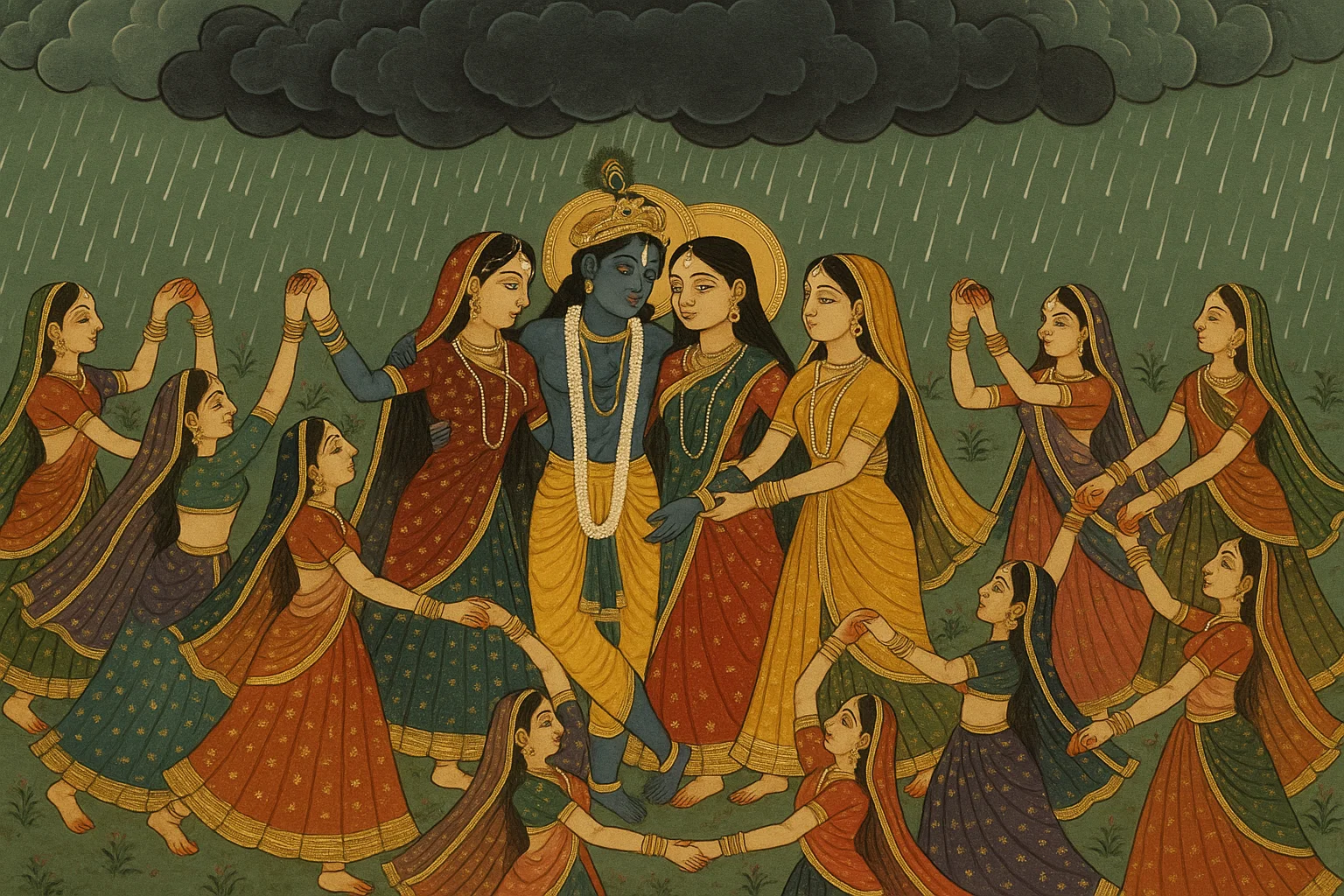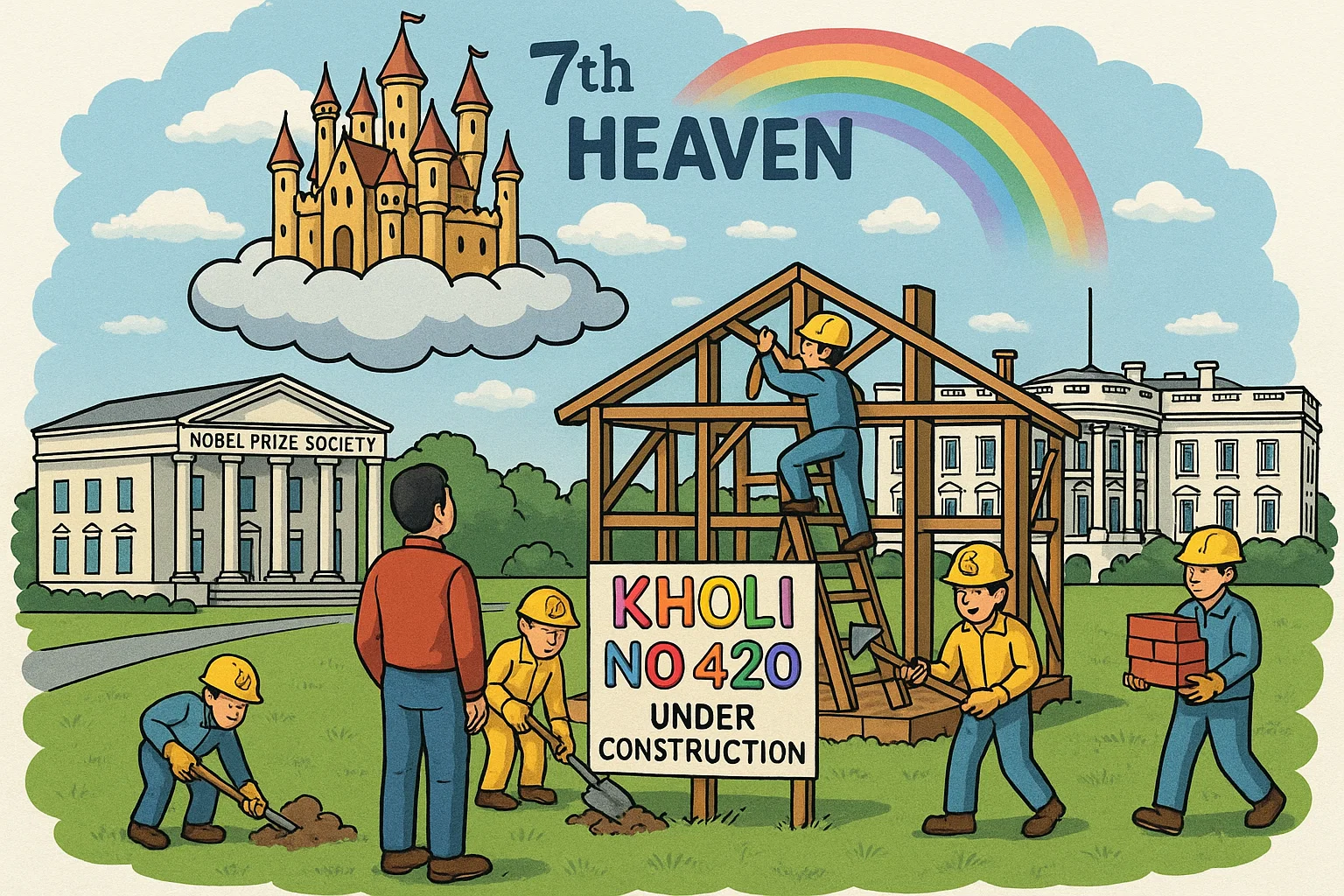The Power of Imagination
On a quiet, moonlit night, a man was found lying helplessly beside the road. His condition drew the attention of many passersby, but no one stepped forward to help. Instead, each individual who came across him saw something different, each interpretation shaped by their own experiences and mindset. Though the man’s condition remained unchanged, the meaning ascribed to his presence varied dramatically.
The first to pass were a group of thieves.
They took one glance at the man and, guided by their own guilty conscience and
worldview, remarked, “Here lies a thief who must have collapsed under the
weight of the loot he tried to steal.” Their perception was not based on fact,
but rather a reflection of their own inner world and way of life.
Shortly after, a group
of drunkards came by. Staggering themselves, they looked at the man and
laughed, saying, “Here lies someone who is even more drunk than us.” Their
judgment, like the thieves’, came not from evidence, but from projecting their
own condition onto another human being. They assumed he was one of them without
a second thought.
Next came a man who was suffering from a severe illness. As he approached and saw the figure lying still, he muttered, “This man must be terribly ill, just like me.” He too interpreted the situation based on his own suffering. He did not consider any other possibilities—only what aligned with his own current pain and experience.
Finally, a man deeply
absorbed in spiritual devotion happened upon the scene. Looking at the still
figure with compassion and reverence, he softly said, “This man must be
intoxicated by divine love, lost in a blissful state beyond this world.” Unlike
the others, he chose to see something beautiful and transcendent in the man's
condition.
This simple roadside
incident reveals a profound truth: imagination shapes our reality. Each person
projected their own mindset onto the helpless man. Whether it was guilt,
intoxication, illness, or spiritual ecstasy, none of them knew the actual
truth. They simply imagined it. This shows how perception is often a mirror of
our own inner state.
The story teaches us a
vital lesson—imagination holds immense power in our lives. If used negatively,
it can blind us and limit our understanding. But if guided positively,
imagination becomes a tool for empathy, inspiration, and even spiritual growth.
Let us choose to imagine the best in others and in ourselves. With positive
imagination, we move closer to truth, compassion, and the ultimate goal of
self-realization..
When the Shadow Writes
Writing does not begin with a perfect sentence. It begins with unease—a quiet friction under the surface, subtle but persistent. Not quite pain, yet far from peace. It’s an internal stir, as if the soul is shifting its weight, unable to settle. Long before words are formed, there is the feeling of something within needing to move, to make itself known.
While we’re taught
that writing is a tool for expression, we are rarely told that it is more often
a form of excavation. Writers don’t always write because they are ready with
something profound to say. More often, they write because something inside them
refuses to remain silent—something unspoken, unresolved, or unfinished demands
release. Writing becomes a slow unearthing, not of stories, but of selves.
This voice that emerges on the page is rarely the curated one—the version we put on display in bios or on stage. It’s the version that avoids small talk, that exists in forgotten fragments and quiet resistance. It’s the part of us we keep deferring, the one we promise to come back to "someday" but never do. Until the writing begins, and suddenly, it’s there—waiting.
Inside everyone is a
shadow—not dark or malicious, but simply ignored. It carries the emotions we
never dared to feel, the truths we were afraid to speak, the beautiful
contradictions too complex to say aloud. This shadow self often arrives at the
desk before the writer does. It sits down uninvited and begins to speak in the
language of honesty, disrupting polished thoughts with inconvenient truths.
The moment this hidden
self takes over, the writing shifts. Structure bends, tidy arguments stumble,
and words once crafted for impact transform into quiet confessions. This isn’t
a failure of technique. It’s the moment authenticity overtakes performance. The
real writer—the tired, honest, and unfiltered one—finally takes the pen.
Writing rarely happens
in the light of clarity. Instead, it begins in the foggy border between
personas—the margins where the public voice fades and the private one hasn’t
yet found its full tone. It’s not therapy. It’s something older, closer to
ritual. A sacred act where language becomes the altar and confusion becomes
sacred offering.
As you write, ghosts
gather. Versions of yourself that you thought you outgrew or abandoned return.
The child, the mask, the forgotten dreamer—they come, without urgency but with
presence. And mid-sentence, you realise you are not only the writer, but the
reader—and perhaps the story itself. You are bearing witness to the unveiling
of your own complexity. It is not a performance. It is a moment of being
seen—by yourself.
And maybe, in the end,
that is enough. It doesn’t matter if no one else reads it. You did. You saw it.
You listened. And that quiet recognition may be the real point of writing all
along.
IF HE EXIST
I drive joy there was a doctor in Benaras who
spent 7 minutes in the morning and evening for mediation on God. Knowing this,
his colleagues and friends laughed at him. One day they argued that he was
wasting 7 precious minutes on something, which he had been misled into
believing. The doctor replied, “Well, if God does not exist, I agree that I am
wasting 7 minutes a day. But, if He exists? I am afraid you are wasting your
entire lifetime. I prefer to waste 7 minutes rather than a lifetime. Why should
you grudge me the 7minutes joy that I derive 4m.-
ILLUSTRATED REVIEW : 7thheaven moment of the week Shubhman gill
77 Top scorer in this series with 700+ runs























